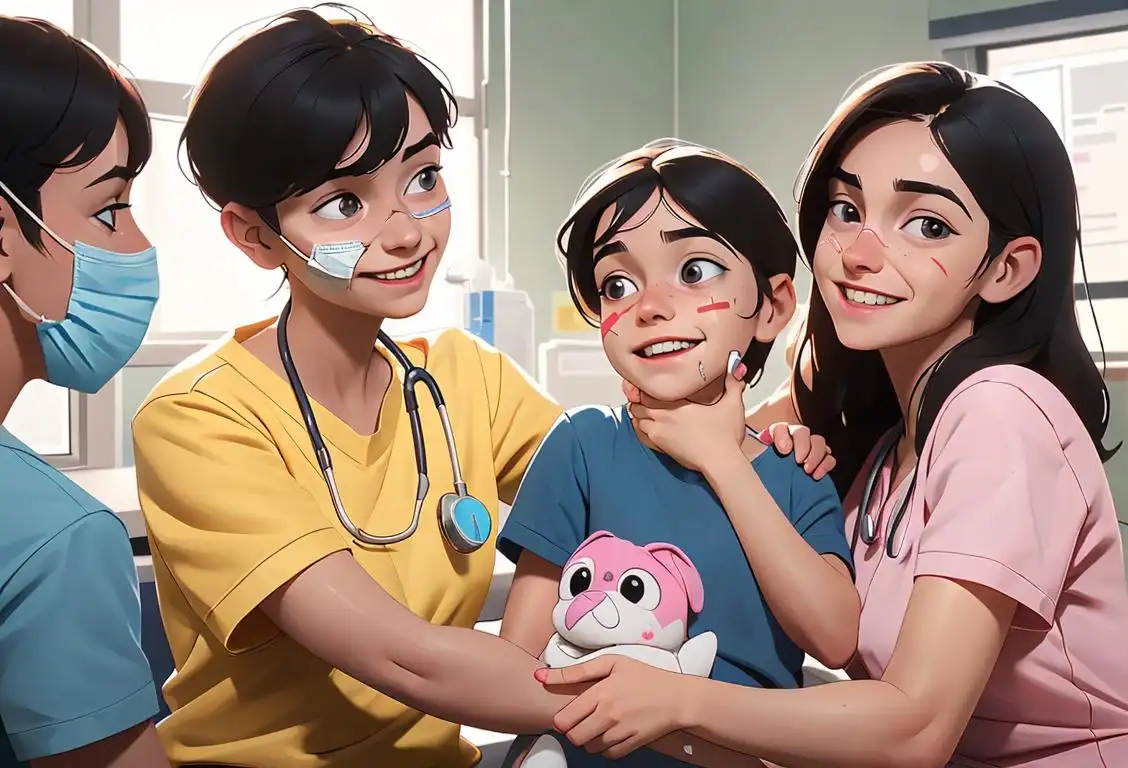National Vaccine Injury Awareness Day

Hey there! Get ready to dive into the fascinating world of National Vaccine Injury Awareness Day. This is your chance to learn about the internet history of this important day and discover some fun and interesting facts along the way!
When is Vaccine Injury Awareness Day?
It's national vaccine injury awareness day on the 3rd June.
The Internet History of National Vaccine Injury Awareness Day
National Vaccine Injury Awareness Day, observed on June 3rd every year, is a day dedicated to raising awareness about vaccine injuries and supporting those who have been affected. It serves as a reminder that vaccines, while generally safe and effective, can have rare side effects in some individuals.
The internet has played a crucial role in spreading awareness about vaccine injuries and providing a platform for affected individuals to share their stories. On this day, social media platforms are abuzz with discussions, personal anecdotes, and resources related to vaccine injuries. People use hashtags like #VaccineInjuryAwarenessDay and #KnowTheRisk to connect with others and raise awareness.
Online communities and support groups provide a safe space for vaccine-injured individuals and their loved ones to share experiences, seek guidance, and find solace. Websites and blogs publish informative articles, expert opinions, and research findings to provide a comprehensive understanding of vaccine risks and side effects. This online presence empowers individuals with knowledge to make informed decisions about vaccinations.
One of the most significant online initiatives related to National Vaccine Injury Awareness Day is the creation of online forums and support groups. These platforms serve as a hub for individuals to seek support, share their experiences, ask questions, and gather information. They have become invaluable resources for vaccine-injured individuals, as well as for parents and caregivers.
It's important to note that National Vaccine Injury Awareness Day is not about discouraging vaccination but about acknowledging that, like any medication, vaccines can have rare side effects. The goal is to promote informed consent and empower individuals to make educated decisions about their health.
Did You Know?
Did you know that vaccines are not just for contagious diseases? There are also vaccines available that protect against certain types of cancer, such as the HPV vaccine.
History behind the term 'Vaccine Injury Awareness'
1796
Discovery of smallpox vaccination
In 1796, Edward Jenner, an English physician, made a significant discovery in the field of vaccination. He successfully developed a method to protect against smallpox by injecting healthy individuals with material from cowpox sores. This process, known as vaccination, marked the beginning of a revolutionary medical advancement.
1986
The National Childhood Vaccine Injury Act (NCVIA)
In 1986, the United States Congress passed the NCVIA in response to concerns over adverse reactions to vaccines. This act established a compensation program for individuals who experienced vaccine-related injuries. It aimed to strike a balance between protecting the public's health and providing support for those harmed by vaccines, raising awareness about potential risks associated with vaccination.
1998
The publication of the controversial study linking vaccines and autism
In 1998, Andrew Wakefield, a British doctor, published a study in The Lancet suggesting a possible link between the MMR (measles, mumps, rubella) vaccine and autism. The study received significant media attention, causing public concern and leading to a decline in vaccination rates. However, subsequent investigations and studies refuted Wakefield's findings and discredited the study, ultimately leading to its retraction.
2000s
Growing vaccine safety monitoring efforts
Throughout the 2000s, organizations such as the Centers for Disease Control and Prevention (CDC) and the World Health Organization (WHO) intensified their efforts to monitor vaccine safety and adverse reactions. They established robust surveillance systems to ensure the continuous evaluation and improvement of vaccines. These efforts aimed to address concerns, promote transparency, and raise awareness about the importance of accurate information when discussing vaccine injury.
2010
The rise of vaccine injury awareness advocacy groups
In 2010, various advocacy groups focused on vaccine injury awareness emerged. These groups aimed to support individuals who believed they were harmed by vaccines and raise public awareness about potential risks. Their efforts contributed to a broader conversation surrounding vaccine safety and the importance of informed decision-making when it comes to immunization.
Present
Ongoing discussions and research on vaccine injury
Presently, the topic of vaccine injury continues to be discussed and researched extensively. Scientific studies and rigorous monitoring systems help identify and evaluate possible adverse reactions to vaccines. While serious vaccine injuries remain extremely rare, the ongoing dialogue fosters a better understanding of immunization safety, emphasizes the importance of comprehensive vaccine education, and promotes confidence in public health measures.
Did you know?
Did you know that vaccines are not just for contagious diseases? There are also vaccines available that protect against certain types of cancer, such as the HPV vaccine.Tagged
awareness loved onesFirst identified
3rd June 2020Most mentioned on
3rd June 2020Total mentions
447Other days
Compliment Day
Cheese Pizza Day
Pumpkin Day
Medal Of Honor Day
Guac Day
Foundation Day
Suicide Prevention Day
Memorial Day
Cancer Survivors Day
Bacon Day









